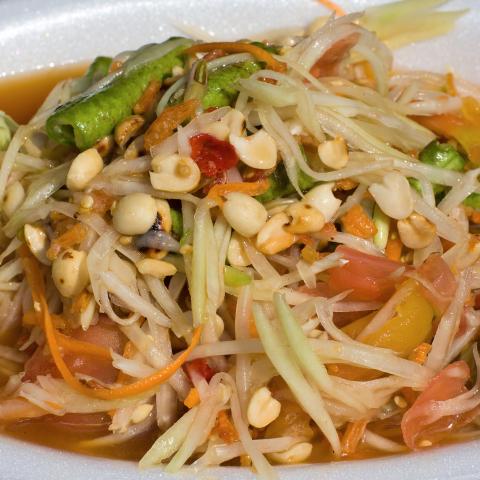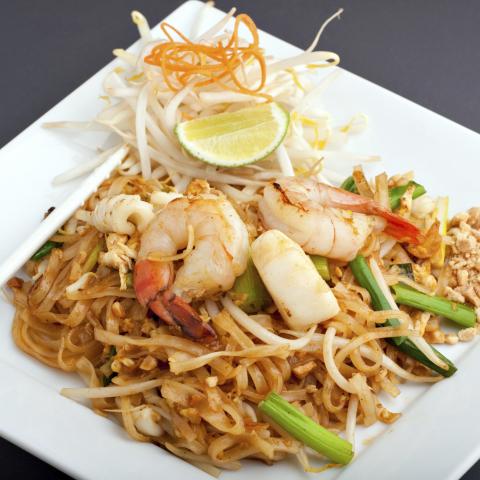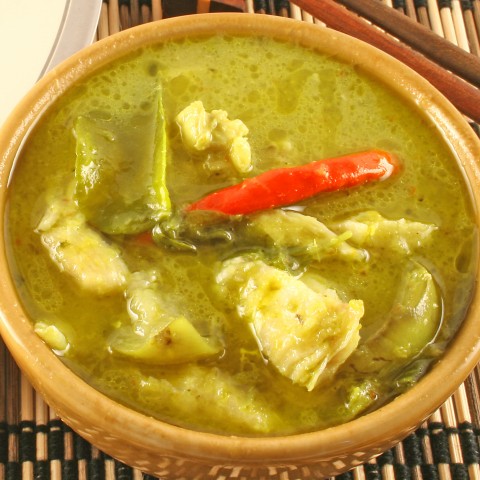
A good portion of conversation time is spent thinking about what to say next. Sometimes, we find ourselves searching for just the right word or figuring out how to respond to someone’s comment. These natural pauses in speech are often “filled” with small, usually meaningless words and expressions that make the lull feel less awkward for both parties.
Thai filler words play a large role in the day-to-day conversations of native speakers, so it’s an important topic for Thai learners to study once they have the basics down. Being able to use filler words correctly will help you sound more like a native speaker and allow you to better understand Thai conversations.
In this article, you’ll learn more about what filler words are and study the most common fillers in the Thai language. We’ll show you how to use each one and provide examples to give you a better idea of what they might sound like in a conversation.
Let’s get started.
 Table of Contents
Table of Contents
- What are Thai filler words?
- อืม (uuem) – um
- เอ่อ (òoe) – ah
- หือ (hǔue)
- อ่าฮะ (àa-há) – yep
- แบบ (bàaep) – like
- อย่างนี้นะ (yàang-níi-ná) – well
- อะไรแบบนี้ (à-rai-bàaep-níi) – stuff like that
- คือว่า / พอดีว่า (khuue-wâa / phaaw-dii-wâa) – well
- ประมาณว่า (bprà-maan-wâa) – like
- ก็ (gâaw) – because
- Conclusion
1. What are Thai filler words?
Before we get ahead of ourselves, let’s go over some basic information about Thai filler words.
Like those in other languages, Thai filler words are meaningless utterances we use to make our conversations smoother. Keep in mind, however, that there is no word for “filler words” in Thai.
While filler words are most often used in spoken conversation, you might also find them written in certain types of literature (especially fiction novels).
Now, let’s look at the most popular filler words in Thai!
2. อืม (uuem) – um
Thai people often make the sound อืม (uuem) during conversations when they’re thinking about what to say or how to answer something.
Example 1
- พ่อ: วันนี้หนูอยากดูหนังเรื่องอะไร
- ลูกสาว: อืม…หนูว่าดูหนังตลกดีกว่า จะได้คลายเครียด
- phâaw: wan-níi-nǔu-yàak-duu-nǎng-rûueang-à-rai
- lûuk-sǎao: uuem…nǔu-wâa-duu-nǎng-dtà-lòk-dii-gwàa jà-dâi-khlaai-khrîiat
- Dad: Which movie do you want to watch today?
Daughter: Um… I think we should watch a comedy movie to relieve stress.

Um… I think we should watch a comedy movie to relieve stress.
Example 2
- เอ: ฉันอยากกินอาหารญี่ปุ่น
- บี: ฉันอยากกินอาหารเกาหลี
- ซี: อืม…งั้นเราไปกินอาหารญี่ปุ่น เสร็จแล้วไปกินบิงซูต่อกัน
- ee: chǎn-yàak-gin-aa-hǎan-yîi-bpùn
- bii: chǎn-yàak-gin-aa-hǎan-gao-lǐi
- sii: uuem…ngán-rao-bpai-gin-aa-hǎan-yîi-bpùn sèt-láaeo-bpai-gin-bing-suu-dtàaw-gan
- A: I want to eat Japanese food.
- B: I want to eat Korean food.
- C: Um… Let’s eat Japanese food and then Bingsu.
3. เอ่อ (òoe) – ah
เอ่อ (òoe) is a popular filler in Thai, used to express shock when the speaker isn’t sure what to say.
Example 1
- ปลา: ฉันใส่เสื้อตัวนี้แล้วเป็นยังไงบ้าง
- แก้ว: เอ่อ…เสื้อสีสวยดี แต่ว่าตัวเมื่อกี๊ดีกว่านะ
- bplaa: chǎn-sài-sûuea-dtuua-níi-láaeo-bpen-yàng-ngai-bâang
- gâaeo: òoe…sûuea-sǐi-sǔuay-dii dtâae-wâa-dtuua-mûuea-gíi-dii-gwàa-ná
- Pla: How do I look in this shirt?
- Kaew: Ah… The color is nice, but I think the previous one you tried is better.
*In this case, Kaew was shocked when she saw Pla and thought she looked bad in the shirt. However, she didn’t want to make Pla feel bad, so she gave her opinion this way. (Thai people have the fear of เสียหน้า [sǐia-nâa] or “losing face.”)
Example 2
- คนขาย: ลองชิมขนมชั้นดูมั้ยคะ อร่อยมากเลยนะคะ
- คนซื้อ: น่าทานมากค่ะ ขอลองชิม 1 ชิ้นค่ะ
- คนขาย: อร่อยมั้ยคะ ตอนนี้มีโปรโมชั่น 3 กล่อง 100 บาท รับ 3 กล่องเลยมั้ยคะ
- คนซื้อ: เอ่อ…กล่องเดียวก็พอค่ะ
- khon-khǎai: laawng-chim-khà-nǒm-chán-duu-mái-khá à-ràauy-mâak-looei-ná-khá
- khon-súue: nâa-thaan-mâak-khà khǎaw-laawng-chim-nùeng-chín-khà
- khon-khǎai: à-ràauy-mái-khá dtaawn-níi-mii-bproo-moo-chân-sǎam-glàawng-nùeng-ráauy-bàat ráp- sǎam-glàawng-looei-mái-khá
- khon-súue: òoe…glàawng-diiao-gâaw-phaaw-khà
- Seller: Do you want to try ขนมชั้น (khà-nǒm-chán)? It is very delicious.
- Buyer: It looks really good. I want to try one.
- Seller: Delicious, right? Currently, we have a promotion: 3 boxes for 100 Baht. Do you want to buy 3 boxes?
- Buyer: Ah… Just one would be enough.
*In this case, the buyer may not like the taste of ขนมชั้น (khà-nǒm-chán) and she definitely doesn’t want to buy any. However, Thai people have a trait called เกรงใจ (greeng-jai). Since she has already tried it, she has decided to buy one box despite its taste.
**ขนมชั้น (khà-nǒm-chán) is a Thai dessert. Its name means “layer snack,” because you can see its layers.
4. หือ (hǔue)
Thai people use the filler หือ (hǔue) to show that they didn’t hear or understand what the other person said.
Example 1
- ตาล: ช่วยหยิบของให้หน่อย
- บอล: หือ…เมื่อกี้พูดว่าอะไรนะ
- dtaan: chûuay-yìp-khǎawng-hâi-nàauy
- baawn: hǔue…mûuea-gíi-phûut-wâa-à-rai-ná
- Tarn: Please bring me that.
- Ball: What did you just say?
Example 2
- คนขาย: รับของหวานเพิ่มมั้ยคะ วันนี้มีไอศครีมชาเย็นค่ะ
- คนซื้อ: หือ…พูดช้า ๆ อีกทีได้มั้ยคะ
- khon-khǎai: ráp-khǎawng-wǎan-phôoem-mái-khà wan-níi-mii-ai-sà-khriim-chaa-yen-khà
- khon-súue: hǔue…phûut-cháa-cháa-ìik-thii-dâi-mái-khá
- Seller: Do you want a dessert? Today, we have Thai tea ice-cream.
- Buyer: Can you speak again slowly?
5. อ่าฮะ (àa-há) – yep
We use อ่าฮะ (àa-há) in conversations to show that we understand what the other party has said, but we either don’t know what to reply or only reluctantly agree.
Example 1
- นักเรียน 1: งานกลุ่มครั้งนี้ ฉันจะทำส่วนนี้ เธอทำส่วนนี้แล้วกันนะ
- นักเรียน 2: อ่าฮะ
- nák-riian 1: ngaan-glùm-khráng-níi chǎn-jà-tham-sùuan-níi thooe-tham-sùuan-níi-láaeo-gan-ná
- nák-riian 2: àa-há
- Student 1: For this group project, I will do this part and you do this part.
- Student 2: Yep.
Example 2
- จันทร์: ฉันไม่ชอบล้างจาน เธอล้างจานแล้วกันนะ
- นภา: อ่าฮะ
- jan: chǎn-mâi-châawp-láang-jaan thooe-láang-jaan-láaeo-gan-ná
- ná-phaa: àa-há
- Chan: I don’t like washing dishes. You do it.
- Napha: Yep.
6. แบบ (bàaep) – like
แบบ (bàaep) is a common filler in Thai, used when the speaker is thinking of how to explain something.
Example 1
- มินต์: เธอว่ายำจานนี้รสชาติโอเครึยัง ต้องเติมอะไรอีกมั้ย
- น้ำ: เราว่ามันรสชาติแบบ…หวาน เปรี้ยว แต่ไม่ค่อยเค็ม เติมน้ำปลานิดหน่อยสิ
- mín: thooe-wâa-yam-jaan-níi-rót-châat-oo-khee-rúe-yang dtâawng-dtooem-à-rai-èek-mái
- nám: rao-wâa-man-rót-châat-bàaep…wǎan bprîiao dtàae-mâi-khâauy-khem dtooem-nám-bplaa- nít-nàauy-sì
- Mint: Do you think this spicy salad tastes alright? Should I add anything?
- Nam: I think it tastes…like sweet, sour, but not salty enough. You should add some fish sauce.
Example 2
- เพลิน: เธอว่าหนังสือเล่มนี้เป็นยังไงบ้าง น่าซื้อมั้ย
- พราว: ก็สนุกดี แต่มันแบบ…จบงง ๆ
- phlooen: thooe-wâa-nǎng-sǔue-lêm-níi-bpen-yang-ngai-bâag nâa-súue-mái
- phraao: gâaw-sà-nùk-dii dtàae-man-bàaep…jòp-ngong-ngong
- Ploen: What do you think about this book? Is it worth buying?
- Praw: It is fun but its ending is…like, unclear.

This book is fun but its ending is…like, unclear.
7. อย่างนี้นะ (yàang-níi-ná) – well
Thai people often use the filler phrase อย่างนี้นะ (yàang-níi-ná) before explaining something.
Example 1
- ครู: ทำไมเธอถึงใช้ตารางในการอธิบาย
- นักเรียน: อย่างนี้นะคะ หนูว่าถ้าใช้ตารางจะดูง่ายกว่า
- khruu: tham-mai-thooe-thǔeng-chái-dtaa-raang-nai-gaan-à-thí-baai
- nák-riian: yàang-níi-ná-khá nǔu-wâa-thâa-chái-dtaa-raang-jà-duu-ngâai-gwàa
- Teacher: Why did you use tables in explanation?
- Student: Well, I think it is easier to explain if I use tables.
Example 2
- เปิ้ล: ทำไมถึงไม่ไปเที่ยวกับครอบครัวเมื่อวานหละ
- ชมพู่: อย่างนี้นะ ช่วงนี้พู่งานเยอะมาก แล้วก็ไม่ค่อยสบาย เลยไม่ได้ไป
- bpôoen: tham-mai-thǔeng-mâi-bpai-thîiao-gàp-khrâawp-khruua-mûuea-waan-là
- chom-phûu: yàang-níi-ná chûuang-níi-phûu-ngaan-yóe-mâak láaeo-gâaw-mâi-khâauy-sà-baai looei- mâi-dâi-bpai
- Ple: Why didn’t you travel with your family yesterday?
- Chompu: Well, recently, I have a lot of work to do. Also, I didn’t feel well so I didn’t go.
8. อะไรแบบนี้ (à-rai-bàaep-níi) – stuff like that
Thai people often use the filler อะไรแบบนี้ (à-rai-bàaep-níi) when explaining things to others, especially if they can’t give as many examples as they would like to.
Example 1
- ลูกค้า: ที่นี่มีบริการนวดแผนไทย หรืออะไรแบบนี้มั้ยคะ
- พนักงาน: เรามีบริการนวดแผนไทยและนวดเท้าค่ะ
- lûuk-kháa: thîi-nîi-mii-baaw-rí-gaan-nûuat-phǎaen-thai rǔue-à-rai-bàaep-níi-mái-khá
- phá-nák-ngaan: rao-mii-baaw-rí-gaan-nûuat-phǎaen-thai-láe-nûuat-thǎao-khà
- Customer: Are there Thai massages or stuff like that here?
- Staff Member: We have Thai massage and foot massage.

Are there Thai massages or stuff like that here?
Example 2
- ส้ม: แม่คะ หนูหิว มีขนมปัง ผลไม้ หรืออะไรแบบนี้มั้ยคะ
- แม่: มีกล้วยอยู่บนโต๊ะ
- som: mâae-khá nǔu-hǐu mii-khà-nǒm-phang phǒn-lá-mái rǔue-à-rai-bàaep-níi-mái-khá
- maae: mii-glûuay-yùu-bon-dtó
- Son: Mom, I’m hungry. Is there any bread, fruit, or stuff like that?
- Mother: There is a banana on the table.
9. คือว่า / พอดีว่า (khuue-wâa / phaaw-dii-wâa) – well
The filler phrases คือว่า / พอดีว่า (khuue-wâa / phaaw-dii-wâa) are often used when the speaker is talking about the events leading up to the current situation.
Example 1
- หัวหน้า: ทำไมวันนี้มาสายคะ
- พนักงาน: พอดีว่า เมื่อเช้ารถเสียค่ะ
- hǔua-hnâa: tham-mai-wan-níi-maa-sǎai-khá
- phá-nák-ngaan: phaaw-dii-wâa mûuea-cháao-rót-sǐia-khà
- Boss: Why are you late today?
- Employee: Well, my car broke this morning.
Example 2
- พ่อ: ทำไมห้องนอนรกอย่างนี้
- ลูก: คือว่า ช่วงนี้รายงานเยอะ หนูเลยไม่มีเวลาทำความสะอาดค่ะ
- phâaw: tham-mai-hâawng-naawn-rók-yàang-níi
- lûuk: khuue-wâa chûuang-níi-raai-ngaan-yóe nǔu-looei-mâi-mii-wee-laa-tham-kwaam-sà-àat-khà
- Dad: Why is your bedroom so messy?
- Daughter: Well, I have a lot of reports to do recently. I have no time to clean.
10. ประมาณว่า (bprà-maan-wâa) – like
Thai people often use ประมาณว่า (bprà-maan-wâa) when they want to explain something.
Example 1
- หนึ่ง: ทำไมราณีซื้อบ้านหลังนี้หละ ไกลจากที่ทำงานออก
- สอง: ราณีชอบ ประมาณว่า ราคาถูก และก็สวยดี
- nùeng: tham-mai-raa-nii-súue-bâan-hlǎng-níi-là glai-jàak-thîi-tham-ngaan-àawk
- sǎawng: raa-nii-châawp bprà-maan-wâa raa-khaa-thùuk láe-gâaw-sǔuay-dii
- Nueng: Why did Ranee buy this house? It is so far from her workplace.
- Song: She likes this house, like it is cheap and beautiful.

She likes this house, like it is cheap and beautiful.
Example 2
- อนันต์: ทำไมร้านนี้คนเยอะจัง
- ฤดี: ร้านอาหารร้านนี้ดังมากค่ะ ประมาณว่า อาหารอร่อย ราคาไม่แพง
- a-nan: tham-mai-ráan-níi-khon-yóe-jang
- rúe-dii: ráan-aa-hǎan-ráan-níi-dang-mâak-khà bprà-maan-wâa aa-hǎan-à-ràauy raa-khaa-mâi- phaaeng
- Anan: Why is this restaurant so crowded?
- Ruedee: This restaurant is so popular, like the food is delicious and it’s not expensive.
11. ก็ (gâaw) – because
We often use the Thai filler word ก็ (gâaw) to explain why we did something.
Example 1
- กฤช: ทำไมซื้ออาหารมาเยอะขนาดนี้
- มาโนช: ก็ตอนซื้อหิวมาก เลยซื้อมาเยอะ
- grìt: tham-mai-súue-aa-hǎan-maa-yóe-khà-nàat-níi
- ma-nôot: gâaw-dtaawn-súue-hǐu-mâak looei-súue-maa-yóe
- Krit: Why did you buy this much food?
- Manot: Because when I bought it, I was very hungry so I ended up buying a lot.
Example 2
- แม่: ยิ้ม ทำไมตื่นสายขนาดนี้ วันนี้เราจะไปหาคุณยายกันนะ
- ยิ้ม: ก็หนูลืม เดี๋ยวหนูรีบไปอาบน้ำเลย
- mâae: yím tham-mai-dtùuen-sǎai-khà-nàat-níi wan-níi-rao-jà-bpai-hǎa-khun-yaai-gan-ná
- yím: gâaw-nǔu-luuem dǐiao-nǔu-rîip-bpai-àap-nám-looei
- Mother: Yim, why did you wake up so late? Today, we will go visit Grandmother.
- Yim: Because I forgot. I will go take a bath now.
12. Conclusion
Congratulations! You’ve reached the end of our Thai filler word and phrase list. What do you think? Are Thai filler words different from filler words in your native language? Comment below to let us know.
While you should be able to speak more like a native with this new information, there’s so much more to learn before reaching fluency! If you want to keep studying and practicing, check out ThaiPod101.com. Not sure where to start? Learning about Thai idioms and slang expressions can make your speech sound even more natural and fluid.
Happy learning!



















































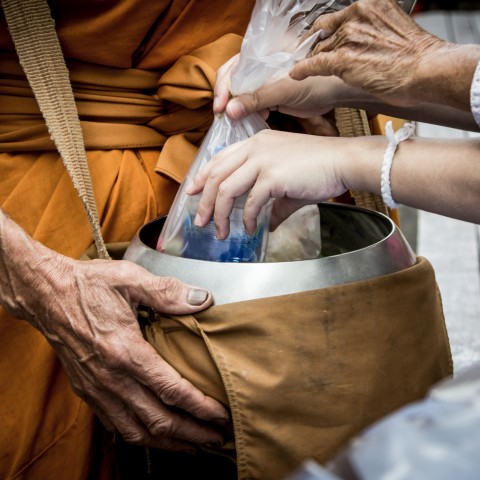

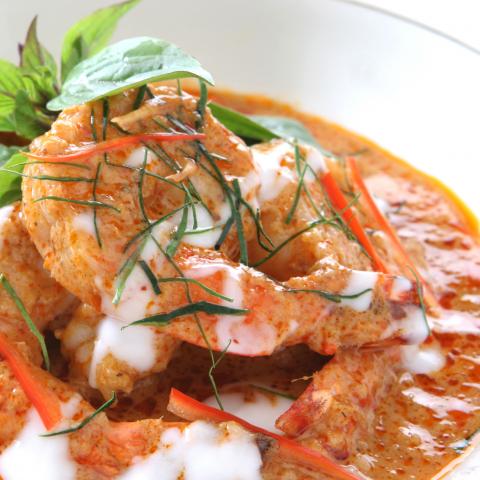
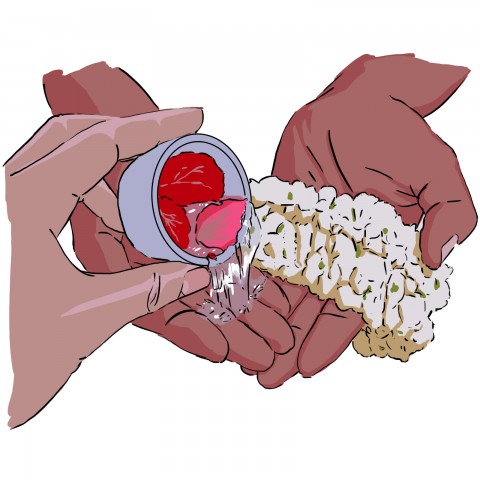


 Table of Contents
Table of Contents
